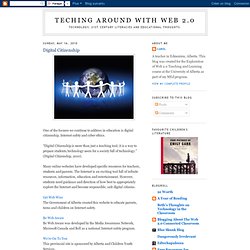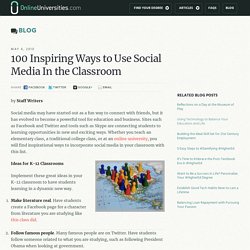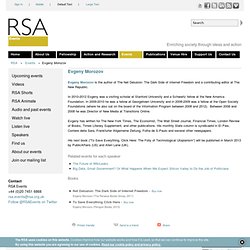

Yochai Benkler - 'The networked public sphere': framing the public discourse of the SOPA/PIPA debate. Rekviēms sapnim. Latvijas Universitātes doktorante Nopūtas, ka Latvijā vairs nav tādas Dienas, kāda tā bija savā spēcīgākajā pagātnē, rada ērtu aizbildinājumu jaunu, mazāka mēroga un cita stila projektu neesamībai. 17. gadsimtā par nostalģiju sauca ķermenisku reakciju uz cilvēka prombūtni no mājām — aptuveni tāpat kā par iesnām sauc ķermeņa reakciju uz saaukstēšanos.
Taču patlaban nostalģiju aplūko vairs ne kā slimību, bet gan kā kultūras parādību, kas signalizē par cilvēka vai sabiedrības neapmierinātību ar pašreizējo situāciju. Nostalģija bijušajās sociālisma valstīs ir īpaši interesanta parādība, kas ieguvusi pat speciālus apzīmējumus — Ostalģija Vācijā vai Jugostalģija bijušajā Dienvidslāvijā. Arī Latvijas mediju videi ir savs nostalģijas paveids — sauksim to par Dienstalģiju.
No avīzes par simbolu Par ilgu objekta dzimšanas dienu var uzskatīt 1992. gadu, kad zviedru mediju koncerns Bonnier kļuva par laikraksta Diena lielāko īpašnieku. Ko lasīt kreisajiem? Un ko gan lasīt kārtīgam latvju hipsterim? Today.
Technology and social inclusion: rethinking the digital divide - Mark Warschauer. Digital Citizenship. One of the focuses we continue to address in education is digital citizenship, Internet safety and cyber ethics.

“Digital Citizenship is more than just a teaching tool; it is a way to prepare students/technology users for a society full of technology.” (Digital Citizenship, 2010). Many online websites have developed specific resources for teachers, students and parents. The Internet is an exciting tool full of infinite resources, information, education and entertainment. However, students need guidance and direction of how best to appropriately explore the Internet and become responsible, safe digital citizens. Get Web WiseThe Government of Alberta created this website to educate parents, teens and children on Internet safety. Be Web AwareBe Web Aware was developed by the Media Awareness Network, Microsoft Canada and Bell as a national Internet safety program. We’re On To YouThis provincial site is sponsored by Alberta and Children Youth Services.
Virtual Freedom: Net Neutrality and Free Speech in the Internet Age (Stanford Law Books) (9780804763851): Dawn Nunziato. A 21st Century Professional Development Proposal - LeaderTalk - Social media in the classroom ~ sites and articles. 100 Inspiring Ways to Use Social Media In the Classroom. Social media may have started out as a fun way to connect with friends, but it has evolved to become a powerful tool for education and business.

Sites such as Facebook and Twitter and tools such as Skype are connecting students to learning opportunities in new and exciting ways. Whether you teach an elementary class, a traditional college class, or at an online university, you will find inspirational ways to incorporate social media in your classroom with this list. Ideas for K-12 Classrooms Implement these great ideas in your K-12 classroom to have students learning in a dynamic new way. Make literature real. Ideas for College Classrooms Integrate these suggestions into college classrooms for engaging learning opportunities. Window to daily life at school. Ways Students Can Use Social Media From practicing a foreign language to finding scientific research, these tips will have students using social media to enhance their education. Find scientific research papers. Offer a class. TweetDeck.
Research on Social Network Sites. Facebook for educators. Infographic: Is Social Media Ruining Students? - Nicholas Jackson - Technology. L'art d'être libres au temps des automates. Consent of the Networked: The Worldwide Struggle For Internet Freedom (9780465024421): Rebecca MacKinnon. The Safe-Surfing Contract. Internet safety resources. AVENIR DE L'INTERNET. 5111 - NEUTRALITE DU NET. Morozovs J. Tīkla mānija. Morozov, Evgeny. Evgeny Morozov is the author of The Net Delusion: The Dark Side of Internet Freedom and a contributing editor at The New Republic.

In 2010-2012 Evgeny was a visiting scholar at Stanford University and a Schwartz fellow at the New America Foundation. In 2009-2010 he was a fellow at Georgetown University and in 2008-2009 was a fellow at the Open Society Foundations (where he also sat on the board of the Information Program between 2008 and 2012). Between 2006 and 2008 he was Director of New Media at Transitions Online. Evgeny has written for The New York Times, The Economist, The Wall Street Journal, Financial Times, London Review of Books, Times Literary Supplement, and other publications.
His monthly Slate column is syndicaetd in El Pais, Corriere della Sera, Frankfurter Allgemeine Zeitung, Folha de S.Paulo and several other newspapers. The Net Delusion by Evgeny Morozov: review.